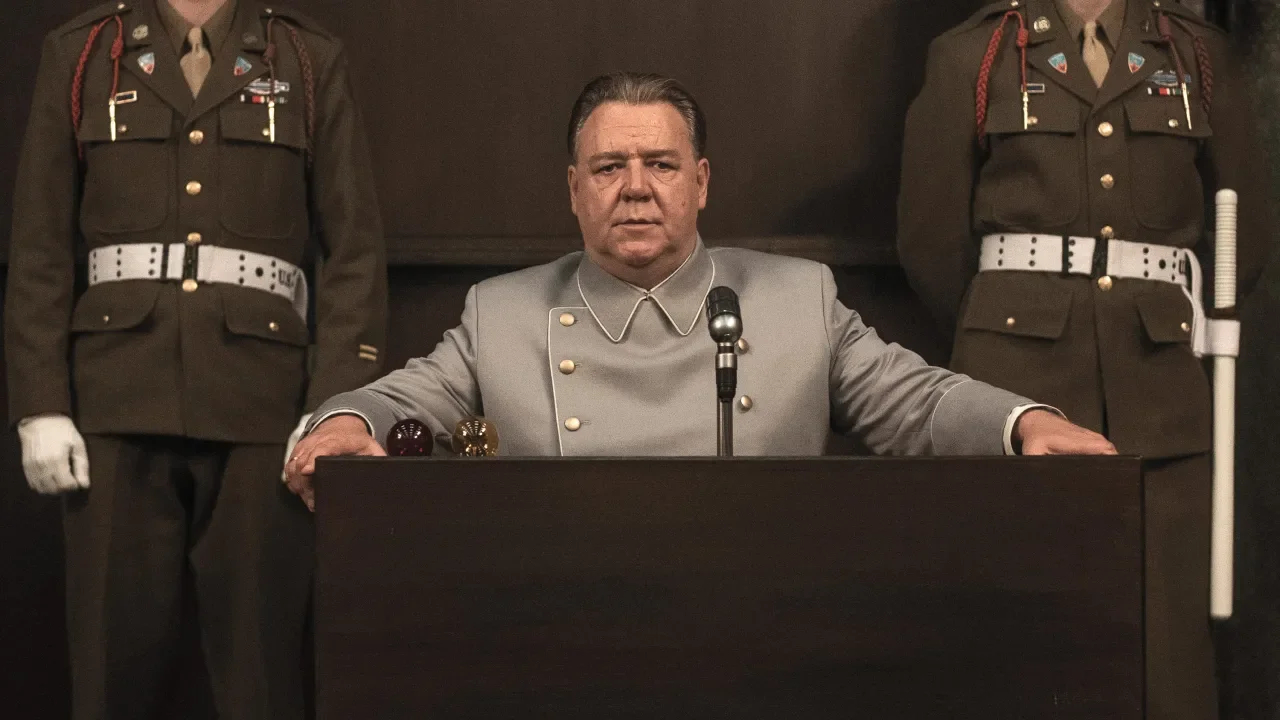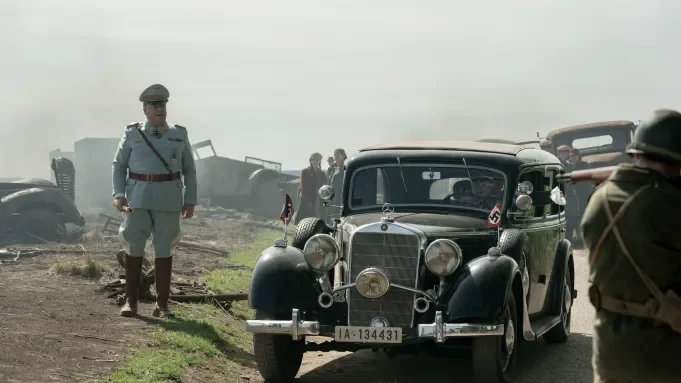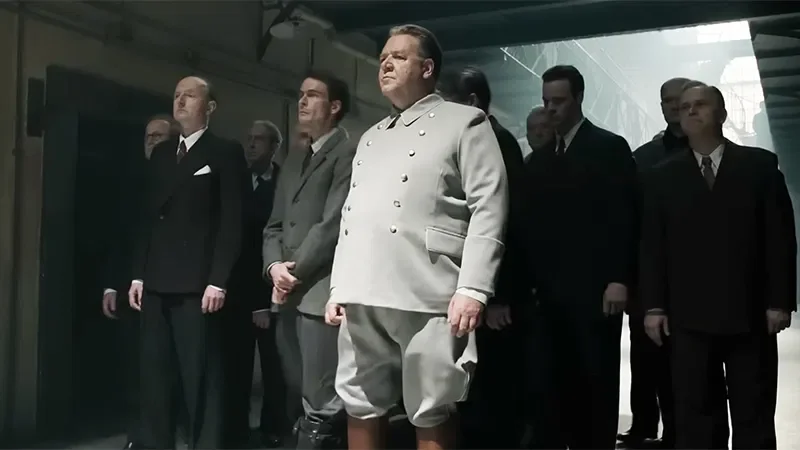Nuremburg
James Vanderbilt’s Nuremburg is a nearly perfect studio film. This doesn’t mean it’s a perfect film by any stretch of the imagination. It can be creaky with some obvious conflict and climax, surprises turned away in favor of setup and explication with a flair for stagey performance. A perfectly cromulent drama. But it is more than that, an exemplar of the fading studio drama form from stage design and story layout to performance and perfectly pitched music cue to push important moments. Once they outnumbered the stars in their ubiquity, the definition of what Hollywood filmmaking was and from which most of the known canon evolved. Now, nearly extinct on the big screen as movie going culture changes, they are like endangered animals encountered in the wild – both marveled at that they still exist but with a touch of melancholy that this might be the last time we see one.
Even the subject matter is perfect; Hollywood has produced more films about the Nazis and World War II than almost any other subject since the event occurred. Can anything more be said about them through this particular lens and/or transplanted onto our modern world? We will certainly know one way or the other by the end; in this case by the end of the famous Nuremburg trials. The second major studio take on the event follows less the legal structure and indictments of the trials and more the interaction of the Allied psychiatrists (Malek and Hanks) tasked with analyzing this strange group of human monsters for fitness to stand trial and find out what, if anything, led them to do what they did and whether they felt any guilt at all.
These types of films tend to be performance showcases and Nuremburg is no different. Essentially a two-hander between Malek’s Kelley and Crowe’s Göring, it’s ultimately not much about the psychology of the Nazi’s or even the difficulties of the trials (which can make them seem tacked on when they appear) as much as it is Kelley’s arrogant obliviousness of the reality of the men he is chronicling amid his certainty he can understand them. Unable to understand how such mostly normal seeming individuals could have done such terrible things he unconsciously pushes the thought aside until he is unable to see any forests at all anymore, only trees. It’s the sort of cracking restraint Malek excels at and he fits the role like a glove, though much of the success comes from performing opposite a Crowe who is more restrained than he has been in years. Göring’s madness instead pierces always from his eyes but goes no further. It's no accident Nuremburg is most alive and has a character of its own when it’s left to just the two of them.
Outside of that Vanderbilt’s script is a more standard dramatic affair, attempting to make larger points about the trial’s focus and the importance of them to prevent the recurrence of the defendants’ crimes – not to mention how easily it is for such crimes to appear in other nations – with strained monologues and more standard courtroom sequences. The dramatic impetus must then be some sort of confession by Göring on the witness stand, a feat left to chief prosecutor Robert Jackson (Shannon) guided by Kelley’s work. Can the psychiatrist be trusted or has he grown to close to his subjects to see the truth?
It's fine, if unremarkable; and yet amazing in its complete adequacy. Even ten years ago it would have been one of dozens of like-minded and toned films coming important elements in the most reductive way possible, the end result of surviving the studio process. Now so few can even attempt such a process; what comes out the other side is less static melodrama and more artifact of the past, out of style even at its creation as filmmaking and filmmakers try to figure what the new version of the form will be. In that sense it should be intensely studied and treasured before we don’t get any more like it.
6.5 out of 10
Starring Rami Malek, Russell Crowe, Leo Woodall, John Slattery, Mark O’Brien, Colin Hanks and Michael Shannon. Directed by James Vanderbilt.




